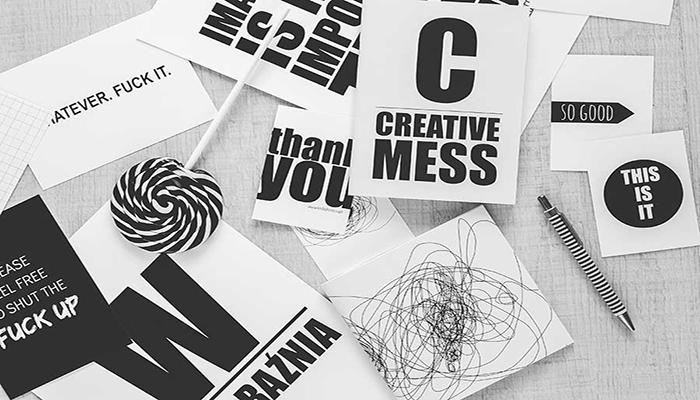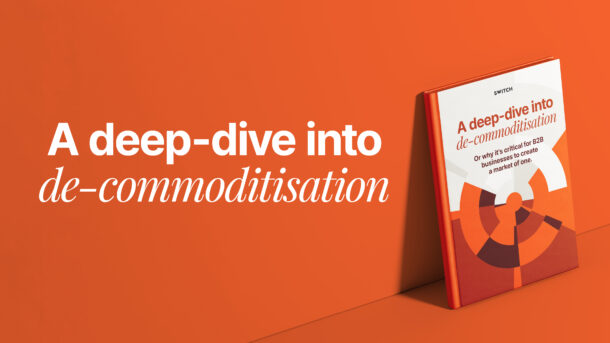One of the hardest steps clients find when starting to work with a digital agency is the briefing process, specifically writing a digital brief. We all know that a brief can determine the success or failure of a job, and the concept of a brief has not really changed since its inception. However the approach has had to change radically with digital media.
We’ve been lucky enough to have worked with a few clients who understood how to brief a digital agency, but we’ve also seen our fair share of nightmare briefs – which is why I’m going to share some tips which will hopefully help you work better with the digital agency of your choice.
There are different expectations for the specific entries in briefs for development projects and campaign projects, but I’m going to try and be as generic as possible.
Trust the agency’s expertise, but share all of yours
It seems terribly self-serving to start with this point, but it’s true. The reason a client comes to an agency should not be solely about knowledge in implementation, but about our expertise in delivering a sound strategy too. We can’t stress this point enough. No matter whether you were a digital marketing expert 6 months ago or whether you’ve never run a digital campaign in your life – trust the experts with the strategy, but have blind faith in their tactics.
The online marketing scenario changes daily, and a good digital marketing agency reads up about the industry obsessively. If you want to be ahead of the curve, then trust their knowledge, but make sure you brief them well. We might know a hell of a lot about online marketing, but you need to teach us all there is to know about your industry, your audience and your objectives.

Always “start with why”
Simon Sinek coined the term globally, but we’ve been saying it (in a slightly different context) before we heard of him (yeah, we’re hipsters that way). Hubspot have a great article about applying “Start with why” to marketing but we also like to apply starting with why to our briefing process.
So ask yourself (and tell us): Why do I want to run this campaign? What is it that is driving you to come to an agency to run a digital campaign? This is different to defining the campaign goals – we’re not after whether you want more leads or more impressions, we’re after the reason that drove you to start working on a brief and put money behind the campaign, specifically online.
Also ask yourself why you’re going to an agency, and what you hope to achieve by working with one.
Define goals
Once you’ve understood why you’re going to start an online project, be it a campaign or a solution, then it’s time to start defining your goals. Painting a clear picture of what you hope to achieve from the exercise will help the agency understand better what you will be judging their performance on.
Goals can vary greatly based on the type of job you’ll be giving your agency, but make sure you take the time to sit down and discuss whether your targets are realistic and whether they make business sense at the end of the day. It might be very fancy to say I want to reach 1,000 Facebook likes by the end of the month – but if you’re marketing a product that is bought by enterprise-level CEOs, then that might not be the right goal to be aiming for at this point in time.
Define audience
Which brings us to the audience. As I stated earlier, we know our stuff, but you know your stuff better. So tell us who your ideal target audience is, and we’ll go after them like a heat-seeking missile.
Be very clear when communicating this though, and let us know whether this audience is the one that will naturally be attracted to your product or service, or whether it is a new market that you would like to tap into. Both goals can be achieved, but they need very different approaches.
Be clear about budgets
“Online marketing is free, though, right?” Erm. No. “But I know how to boost posts on Facebook, so I can handle it myself, right?” Erm. No. We usually point our customers in the direction of my micro introduction to online advertising (and part 2) at this stage. Online marketing, when managed correctly, offers a phenomenal return on investment, but it’s far from free.
So next time you’re looking for a digital marketing provider, set a budget for your campaigns. If you’re lost, get in touch with one and you can get a list of suggestions. Don’t make one mistake, however. Don’t come to an agency like ours and define the amount of “airtime” spend vs agency fees (we’ve had this happen to us, really). Any self-respecting agency will show you the door. If you’re used to spending 10% of your “airtime” on production fees for something like TV or print, then think again.
A TV ad is filmed once and shown repeatedly, so whether you show it once or a 100 times, there is only one contract to be negotiated and signed. You’re done in a few hours and you see the commission rolling in every time the ad is shown.
Digital ad campaigns are very different. They take constant monitoring and tweaking and need to be reported on regularly. And that’s just advertising. If you want to see your ROI shoot up you should be working on an inbound marketing strategy – ratios there would usually be closer to 80:20 (fees:ad spend), but your return on investment will usually go up by about 60%. Remember, it’s not who you spend your money with that counts, it’s what you get out of it.
Tell us what you love
Okay, so I already said you should not dictate strategy, but hey, this does not mean I don’t want to hear your side of the story. Digital marketing is human after all, and we need to communicate your story in a way that reflects your (and your brand’s) personality.
If you’re after a development project, then it is far more important for you to tell us what other sites you like using and what the market leaders in your field are doing. If you can, also tell us why you love what you love – tell us why you think a particular site is working.

Tell us what you hate
This is just as important. We don’t want to offend anyone with our efforts, and we sure as hell don’t want to have an irate customer on our hands because we designed a site in a way that does not work for them.
Just as crucially, you should be in a perfect position to tell us what your customers hate. So tell us, and tell us at this stage, not after we’ve spent three weeks coming up with a creative concept. Remember, at this stage marketing transcends political correctness. So if you have an audience that would go better with a particular minority or would have a great problem with another one, let us know now and we’ll keep it in mind.
Tell us what to keep in mind
Sometimes clients also have wild-cards. They have agreements with personalities, they have brands they can’t compete with or others they have to compete with, suppliers they have to use (or avoid) etc. Let us know about these as early as possible.
This can change the way a campaign or project goes drastically, so it is imperative that we know before we work on it. So if your e-commerce site needs to plug into your cash register – give us the brand at brief stage so we can look into the technology that will join them together now, not a week before we launch the site.
Finally
Remember: “If you fail to communicate, you’re communicating failure”, goes the oft-quoted mantra. Which is why there is no surer road to creative failure than a miscommunicated and subsequently misunderstood job.
Take your time to come up with the best brief possible and you will be sure to reap the rewards at the end of the campaign. You’ll also have a happier agency – and hey, we’re human too 🙂




